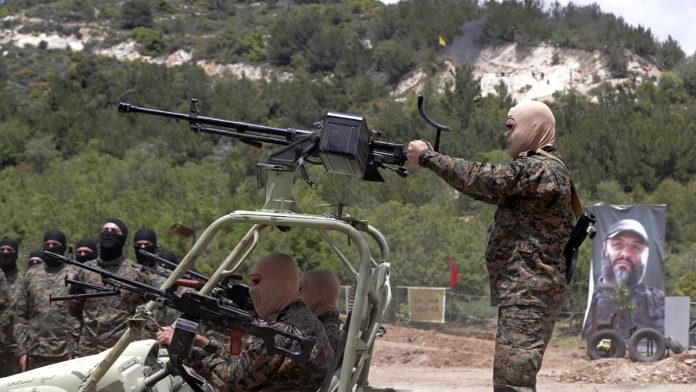– Ferdous A Barbhuiya
The prospect of an all-out war between Hezbollah and Israel presents a complex and perilous scenario, characterized by strategic calculations and potentially devastating outcomes. Currently, the conflict remains in a phase of cautious escalation, with both parties engaging in limited, reciprocal actions along the frontier. However, this fragile situation could escalate dramatically under certain conditions.
Hezbollah, despite its formidable capabilities, has exercised restraint in escalating the conflict beyond occasional harassment of Israeli troops and installations. This measured approach is heavily influenced by Iran, Hezbollah’s primary patron, which has not sanctioned a full-scale escalation. This strategy is prudent, considering Hezbollah’s role as Iran’s strategic asset against Israel. By maintaining a substantial arsenal of troops, rockets, and other weaponry, Hezbollah serves as a deterrent to potential U.S. attacks on Iran.
This strategic equilibrium, however, is precarious. A full-scale war with Israel would likely drain Hezbollah’s resources, diminishing its capacity to act as Iran’s counterweight. In such a conflict, Hezbollah could launch thousands of rockets monthly, but its supplies might last only six months to a year. Resupplying Hezbollah during a prolonged conflict would pose significant logistical challenges, as Israeli forces would target their supply lines in Syria. In contrast, Israel, supported by the U.S., could sustain its war effort through continuous airlifts and weapon shipments.
Given these limitations, both Israel and Hezbollah, along with Iran, must carefully assess whether now is the optimal time for direct confrontation. Israel seems inclined towards escalation, perceiving it as easier to intensify the conflict now rather than facing a more formidable challenge later. For Israel, national pride, ego, and reputation are at stake. Failing to achieve a decisive victory in Gaza and Southern Lebanon could be seen as a humiliation.
The Israeli public, having braced themselves for war, might prefer to see the conflict through to its conclusion. Nonetheless, significant challenges remain. Israel’s recent operations in Gaza have not achieved the desired results, and an attack on Lebanon could similarly falter. However, Israel may have a long-term strategic goal: to force Hezbollah to exhaust its resources, thereby reducing the threat to its territory and indirectly weakening Iran’s strategic position.
Iran is acutely aware of these stakes. Faced with the potential depletion of Hezbollah, Iran must choose between two difficult paths: de-escalate to preserve Hezbollah as a deterrent and maintain the status quo, or fully support Hezbollah, risking a protracted conflict that could significantly weaken its proxy force. This decision involves a complex calculus of regional power dynamics, military capabilities, and strategic priorities.
Ultimately, the potential for an all-out war between Hezbollah and Israel remains a volatile and uncertain situation. Both sides must weigh their options carefully, considering the long-term implications of their actions. For now, the tense status quo might be preferable to the chaos and devastation of full-scale war. However, as the situation evolves, so too will the strategic calculations of both Israel and Hezbollah, with Iran’s overarching influence casting a long shadow over the region’s future.




